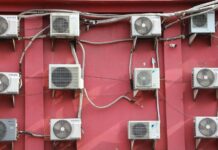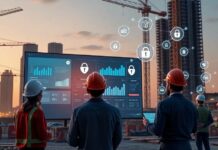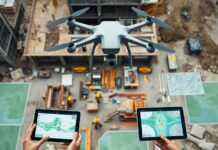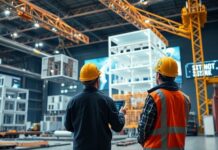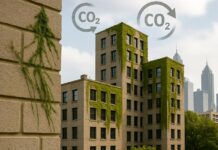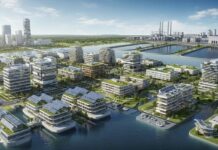World Construction Today – While the consequences of climate change are still being felt, nations around the world are working to cooperatively stop this frightening issue and avoid it altogether. Most of all, it seeks to prevent the potentially irreparable harm that this occurrence might do in the future.
It’s interesting to note that worldwide emission rates increased by 6% as the world sluggishly recovered from the pandemic. The International Energy Agency conducted a detailed investigation that revealed that worldwide energy-related emissions of carbon dioxide increased to their highest-ever level to 36.3 billion tonnes.
Unfavorable weather, the state of the energy market, and the increase in post-pandemic energy consumption all contributed to this unanticipated increase. The overall net zero emissions advantage appeared to be reversed by this factor.
The UAE has been persistently tackling the problem regionally, with great success. The UAE’s CO2 emissions per person will have significantly changed by 2021 as a result of deliberate state and private sector efforts.
The UAE co-signed a significant MoU for an onshore wind farm with Egypt as part of the two countries’ renewable energy targets, and this commitment was reaffirmed during the recently finished COP27 meeting. The UAE is well on its way to making a significant contribution and progress toward this goal after detailing its net-zero emissions goal under Net Zero Vision 2050.
The Paris Agreement-aligned UAE’s Net Zero Vision 2050 is a commendable endeavour that serves as a benchmark and source of inspiration for all significant regional players to embrace sustainable practises that will ultimately aid in its realisation.
Infrastructure’s role
To reach this crucial milestone, participants from many industries must work together to develop and incorporate sustainable production methods and solutions. Regionally, the construction of new infrastructure stands out as one of the most major and influential industries that can considerably advance the UAE’s objective of achieving net zero emissions.
The construction industry, which is a major force in the infrastructure sector, is fundamental to advancing this important agenda. The building business, and consequently the real estate industry, is not only one of the major drivers of economic growth and development in the UAE, expected to generate $85.6 billion in 2021, but it may also make a considerable contribution to emissions reduction.
Given the importance of the construction sector in the region, it is necessary for the sector to support the UAE’s long-term goal of achieving net-zero. The UAE government said in October 2021 that more than 11,000 new homes were being built throughout the nation, and in November 2021, it approved housing projects totaling $1 billion.
The sector, which is anticipated to increase by 4.2% in 2022, is well-positioned to contribute to the movement toward net zero emissions by making sure that it promotes the use of renewable energy and environmentally friendly raw materials in the development of its projects.
Following the UAE government’s push for net zero emissions, the majority of industry participants have jumped on board and reaffirmed their dedication to using sustainable construction methods. A sign of the much-needed support from the corporate sector is that by the end of 2021, about 470% of businesses in the UAE alone had declared their intent to align their initiatives with the UAE’s Vision 2050.
The construction industry has made a number of important initiatives, including using sustainable raw materials all through the project and utilising green energy in the construction phase. Another method the business is using is to include green spaces in every project. This is mainly because end users are becoming more and more concerned with their well-being.
By doing this, the UAE industry sets a goal to lower its emissions and carbon footprint by up to 31% by 2030. It also promotes the use of green energy and, most importantly, the adoption of environmentally friendly procedures by other businesses in the UAE and the Middle East as a whole.


